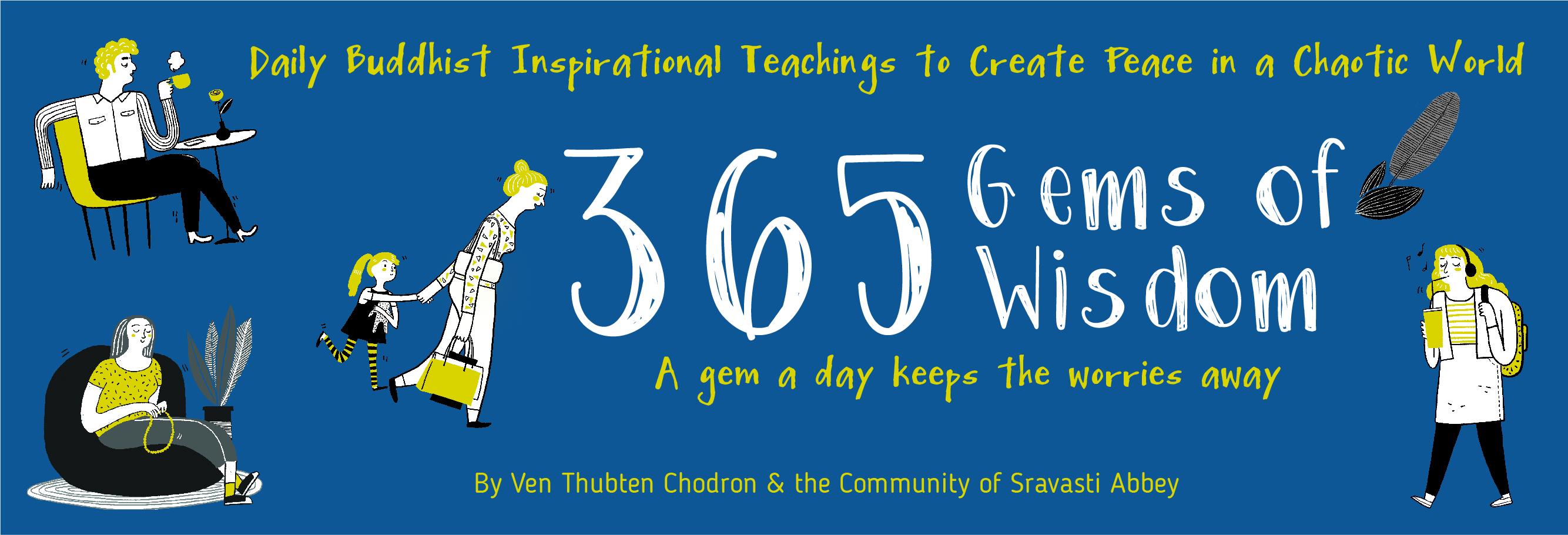December 30 : Habits
We are basically creatures of habit. We have the tendency to keep doing the same thing over and over again. Some of our mental, emotional, verbal, and physical habits are conducive for liberation and some of them are not. Just because we have a habit does not mean the habit is us or that it is permanent. Habits are just conditioned phenomena. A lot of what we are doing in Dharma practice is noticing those mental, physical and verbal habits — particularly the mental ones — and reconditioning ourselves and transforming our energy so it goes in a constructive direction.
Without even trying, we recognise others’ habits. If we live with someone or see them regularly, their habitual ways of thinking, feeling, speaking, and acting become evident to us. Our habits are not so obvious to us. Or sometimes they are obvious, but we are very entrenched in them. We defend them. We do not want to change them. That can cause a great deal of suffering.
It is good to be on the lookout, not so much for others’ habits, but to do some research and come to know our habits. What are the habitual motions and actions that we do? What are the habitual thought patterns that we follow? How do we habitually speak?
The Buddha said, “Look not so much at what other people do and leave undone, but at our actions, what we do and leave undone.” That is the primary thing in our practice — looking at our habits and then evaluating which ones lead to longterm happiness and which ones lead to misery. Then we learn the techniques the Buddha taught to subdue the ones that are not beneficial and to enhance and maintain the ones that are.
“365 Gems of Wisdom” e-book is out now!

